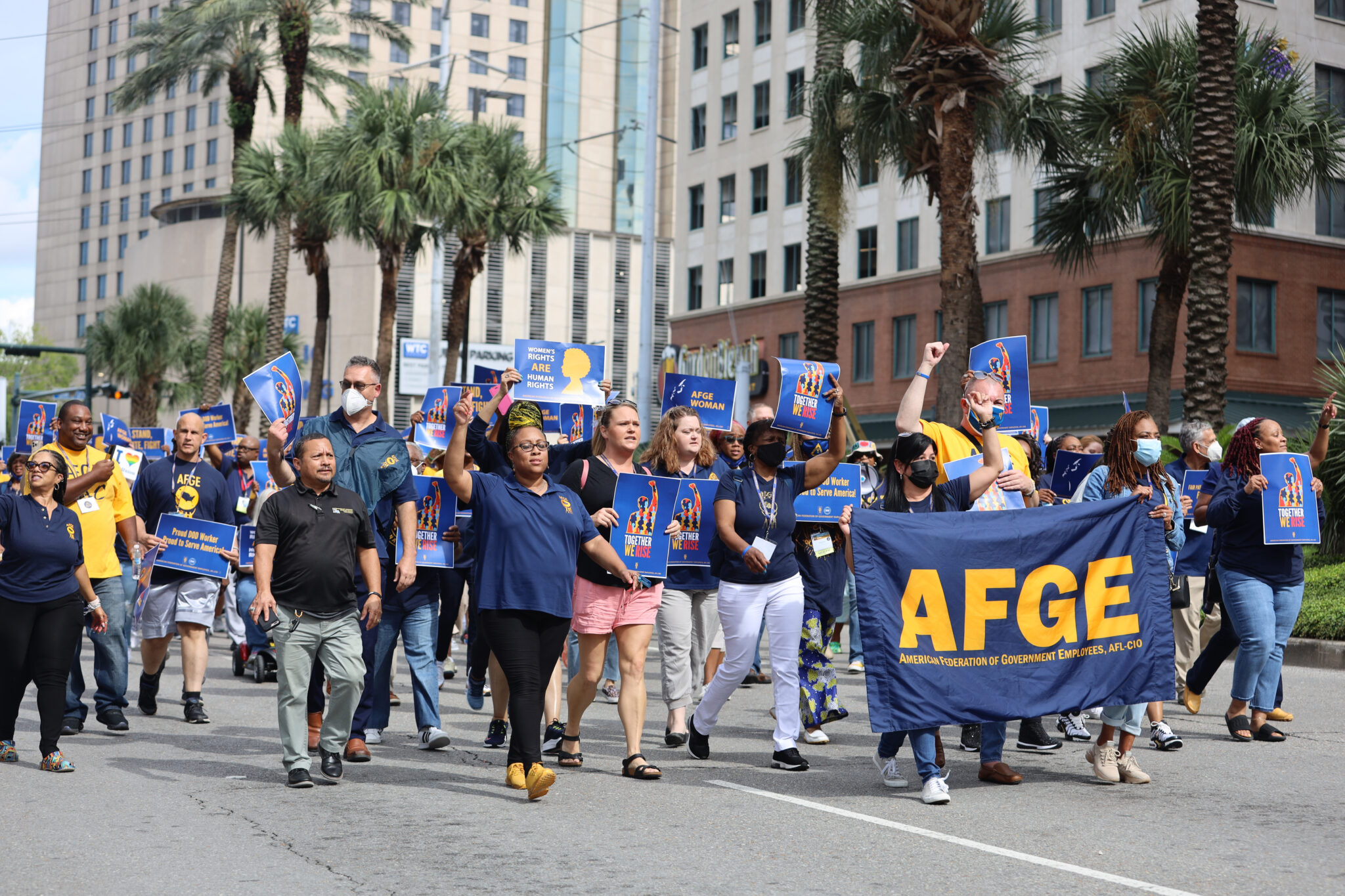
Mila Rostain is a student at Harvard Law School.
In today’s News and Commentary, Senate Democrats introduce a companion bill to nullify Trump’s executive orders ending collective bargaining rights for federal employees, the Massachusetts Teachers Association faces backlash after calling on school districts to respect union contracts following the killing of Charlie Kirk, and Loyola Marymount University claims a religious exemption and stops recognizing their faculty union after ten months of bargaining.
Yesterday, Senate Democrats introduced a bill that would nullify President Trump’s executive orders ending collective bargaining rights for federal employees. The House is already considering that proposal, which was introduced in April. The House version of the Protect America’s Workforce Act is two signatures away on a discharge petition to force a floor debate. In the Senate, 48 senators introduced the Protect America’s Workforce Act. Everett Kelley, president of AFGE, praised the senators and stated that the executive order “represents the single most aggressive action taken by the federal government against organized labor in U.S. history, dwarfing any previous action against public or private sector working Americans.”
On Tuesday, the Massachusetts Teachers Association (“MTA”) called on local school districts to refrain from taking “actions that would validate accusations by extremists against educators,” following the death of Charlie Kirk. Since last week, school officials have placed at least five school employees on leave who allegedly posted about Kirk online. Following MTA’s statement, state Republicans criticized the union’s position. In response to Republican pushback, union leadership reiterated its commitment to the safety and support of MTA members.
Last week, Loyola Marymount University (“LMU”) announced it will no longer recognize its faculty union and will stop bargaining. As reported in Inside Higher Ed, LMU is claiming a religious exemption with the NLRB. In explaining the decision, LMU cited financial concerns and argued that claiming the exemption would preserve autonomy while continuing to bargain would “jeopardize the university’s near-term viability and long-term sustainability.” Rather than continue bargaining, LMU implemented a series of unilateral changes. Professor William Herbert noted that schools claiming the religious exemption typically do so when a union files a representative petition, not a year later during the bargaining process. The union, which won recognition in 2024 and had been bargaining for the past ten months, filed an unfair labor practice charge in response with the NLRB.






Daily News & Commentary
Start your day with our roundup of the latest labor developments. See all
February 25
OSHA workplace inspections significantly drop in 2025; the Court denies a petition for certiorari to review a Minnesota law banning mandatory anti-union meetings at work; and the Court declines two petitions to determine whether Air Force service members should receive backpay as a result of religious challenges to the now-revoked COVID-19 vaccine mandate.
February 24
In today’s news and commentary, the NLRB uses the Obama-era Browning-Ferris standard, a fired National Park ranger sues the Department of Interior and the National Park Service, the NLRB closes out Amazon’s labor dispute on Staten Island, and OIRA signals changes to the Biden-era independent contractor rule. The NLRB ruled that Browning-Ferris Industries jointly employed […]
February 23
In today’s news and commentary, the Trump administration proposes a rule limiting employment authorization for asylum seekers and Matt Bruenig introduces a new LLM tool analyzing employer rules under Stericycle. Law360 reports that the Trump administration proposed a rule on Friday that would change the employment authorization process for asylum seekers. Under the proposed rule, […]
February 22
A petition for certiorari in Bivens v. Zep, New York nurses end their historic six-week-strike, and Professor Block argues for just cause protections in New York City.
February 20
An analysis of the Board's decisions since regaining a quorum; 5th Circuit dissent criticizes Wright Line, Thryv.
February 19
Union membership increases slightly; Washington farmworker bill fails to make it out of committee; and unions in Argentina are on strike protesting President Milei’s labor reform bill.